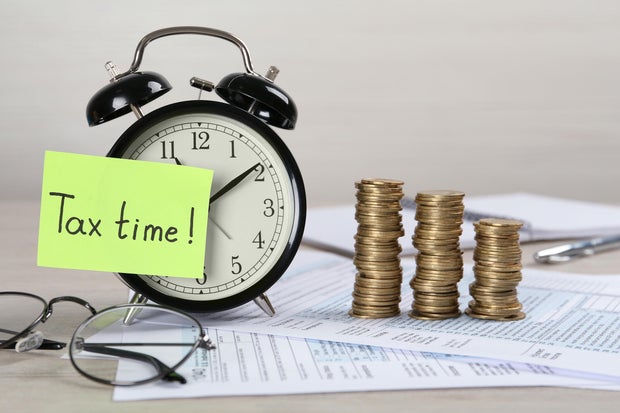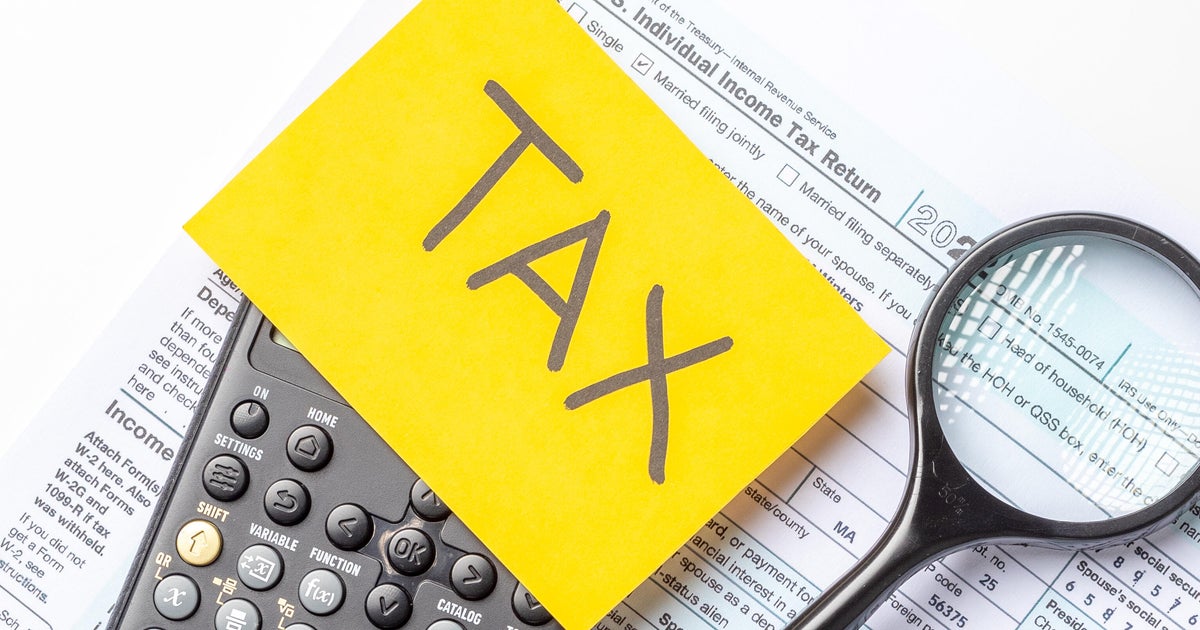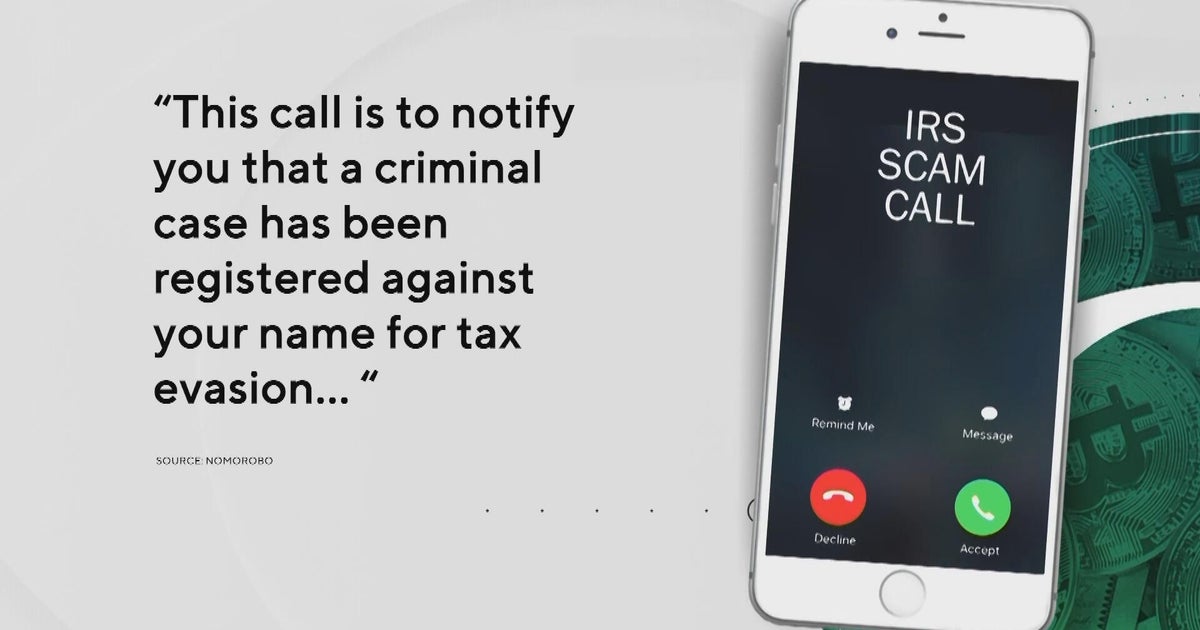What happens if you owe taxes?
It's that time of year again. Tax day, April 15, is fast approaching, and millions of Americans are rushing to gather their financial documents and file their federal and state tax returns. For those receiving a tax refund, it's a welcome time. Others, unfortunately, may find themselves owing money to the government.
And, recent data shows that a large number of tax filers won't get a refund this year. According to Internal Revenue Service (IRS) data from late March, about three in 10 people either owed taxes or came out even. So, if you find yourself owing money to the government after filing taxes this year, it's good to know what will happen and what your options are.
Find out how to start tackling your tax debt today.
What happens if you owe federal taxes?
If you owe money on your income taxes, the IRS will send you a notice detailing your tax liability. If you file electronically — either on your own or through a tax pro — you can choose to have your tax payment debited directly from your bank account.
You'll likely owe interest and penalties if you don't pay by the deadline.
"Those who owe taxes but don't pay by the deadline should expect the IRS to charge late payment fees of 0.5% of the amount of tax that is owed," says Gene Bott, vice president and senior tax advisor at Tax Hive. "They will also start assessing interest at a rate that is typically 3% higher than the current federal interest rate."
The quarterly federal short-term rate is currently 4.10% and the IRS announced in March it would charge 7% on taxes owed.
Bott notes that if you don't file a return, the IRS usually won't start sending letters about your tax debt until a few months have passed to give you time to file
"Once your return has been filed or a certain amount of time has passed — usually six months — the IRS will start sending letters to remind you of the outstanding payment and the accruing penalties and interest. Once they have reached out a certain number of times, they will assign your account to a collection agency for further follow-up," Bott says.
Collection agencies may pursue more aggressive actions to collect the debt, including establishing liens, garnishing wages and even tapping into bank accounts — though Bott says the last option is rarely used.
The takeaway is clear: Communicate with the IRS and make arrangements to tackle the debt. They'd usually rather work with you to find a workable solution than work against you.
Learn how the right tax relief service could help you now.
What happens if you owe state taxes?
As with federal taxes, it's best to promptly respond to any state tax bills, even if you can't afford to pay the full amount right away. In most cases, you can arrange a payment plan that works for you and keeps the state from imposing more serious penalties. But your options will depend on where you live.
"Obviously, each of the 50 states can impose different late tax payment assessments," says James Guarino, CPA and managing director at Baker Newman Noyes. "However, many impose assessments that are similar to the federal government. This includes late filing [and] late payment penalties as well as late payment interest."
Guarino adds that some states go even further.
"What might be more surprising is that some states will also suspend or revoke driver's licenses, recreation licenses and professional licenses for not paying income taxes," Guarino says.
What happens if you owe back taxes?
If you owe taxes, the worst thing you can do is avoid the problem. The longer you wait, the more expensive the problem becomes and the fewer options you'll have.
"The best solution is to pay the outstanding debt and seek penalty abatements," says Bott. "This helps avoid any damage to credit scores and increasing penalties and interest."
Still, you may not be in a position to repay your debt in full now. In that case, Bott suggests looking into penalty abatement to waive outstanding penalties, setting up a payment plan or pursuing injured spouse relief if your tax debt resulted from a spouse's filing mistake.
You might pursue an offer-in-compromise if you can demonstrate the tax creates an undue hardship. This is a formal agreement with the IRS to settle your tax debt for less than you owe. But this relief can be difficult to get, says Bott.
"The key is to demonstrate the income that created the debt was a one-time event or there were significant changes in circumstances that will make it impossible to get that income again," Bott says.
What about tax relief services?
"The most effective form of tax relief comes in seeking penalty abatements," says Bott. "Any taxpayer that has not used a penalty abatement in the past or has reasonable cause for being late can seek relief under these terms."
If you've exhausted your options, including a payment plan and abatement, a tax relief service may be able to help. These firms can work with the IRS on your behalf and help you resolve your tax issues for good. They can negotiate a manageable payment plan and potentially reduce the amount you owe.
While tax relief companies charge a fee, it may be worth it if you're facing serious collection actions. Make sure any company you consider has transparent pricing, so you know what to expect. They should also have licensed tax professionals with experience negotiating with the government.
The bottom line
No one wants to owe the IRS, but it's not the end of the world if you do. Whether the debt is to the IRS or your state, paying it off quickly is the best way to avoid complications. If that's not possible, contact the IRS or your state to work out a payment plan, abatement or other solutions. Remember, the IRS is usually willing to work with you if you stay in touch and take steps to settle your debt. Even if you can't pay it off in full, a little action can make a big difference.




